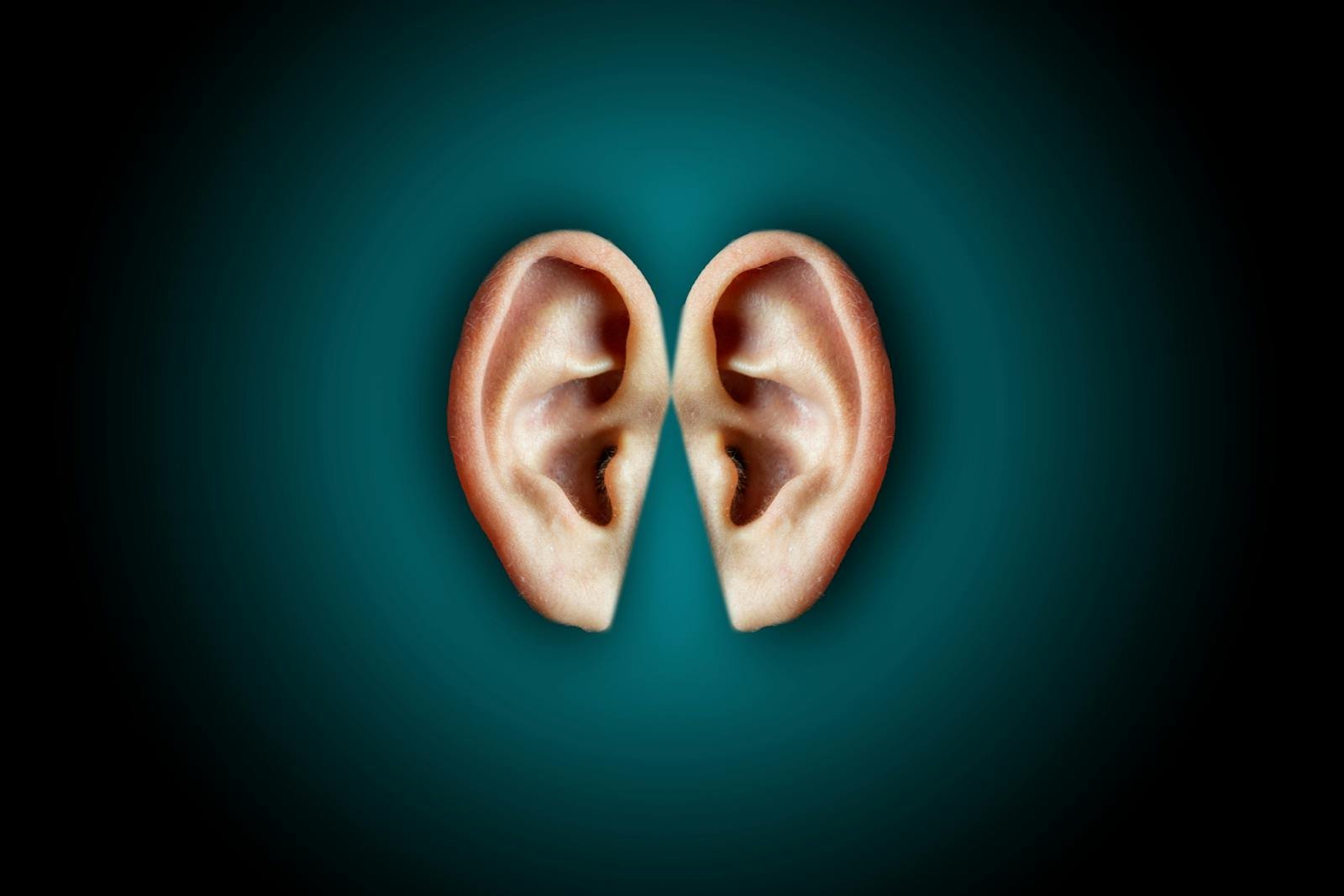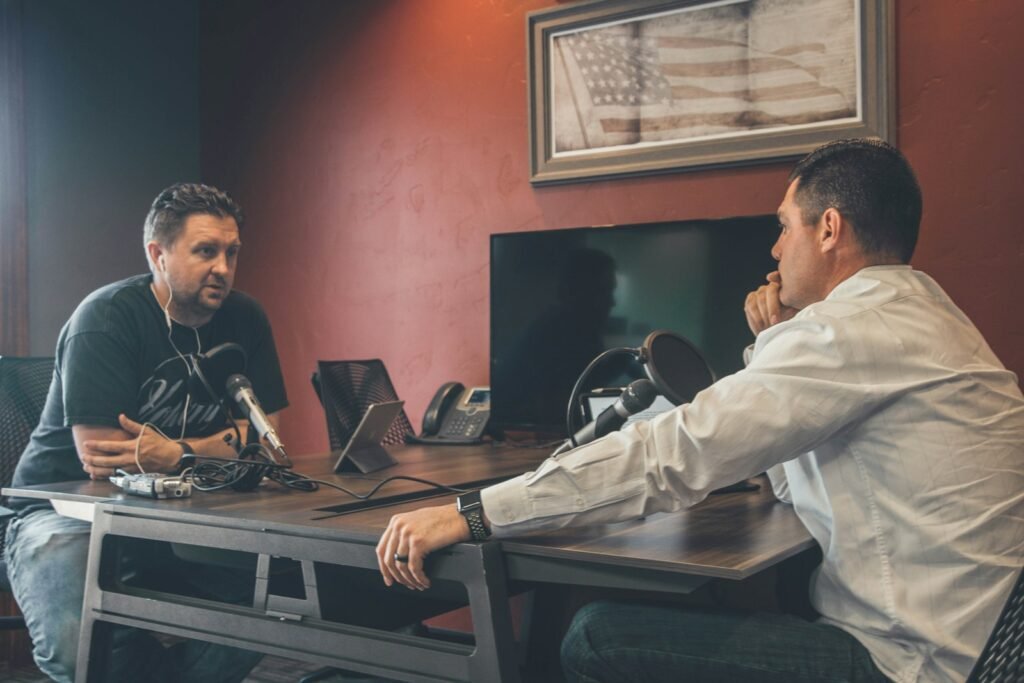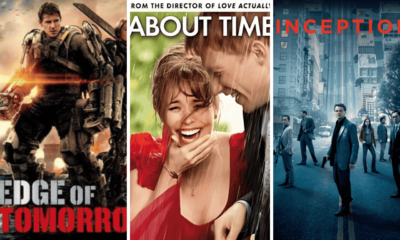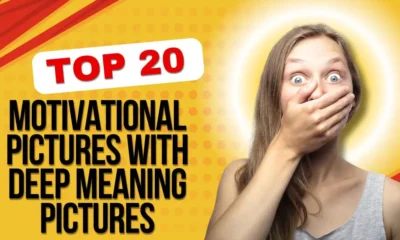Information Literacy
Don’t Be So Quick to Believe What You Hear: Lies Spread Faster Than the Truth

Introduction: The Speed of Misinformation
In today’s digital age, the adage “don’t be so quick to believe what you hear because lies spread faster than the truth” has never been more relevant. Misinformation, rumors, and outright falsehoods have the unprecedented ability to disseminate across the globe within minutes, influencing public opinion and behaviors on a massive scale. The focus of this blog post is to urge readers to be cautious and discerning when confronted with information, especially in an era where the velocity and volume of data can easily obscure the veracity of facts.
Numerous studies substantiate the claim that misinformation travels quicker than the truth. For instance, research from the Massachusetts Institute of Technology (MIT) observed that falsehoods on Twitter were 70% more likely to be retweeted than the truth. Furthermore, it was found that true stories took six times as long to reach 1,500 people compared to false stories. This rapid spread is often fueled by sensationalism and the emotional response it elicits, prompting individuals to share without verification.
The psychological underpinning of this phenomenon can be traced to several factors. Cognitive biases, such as the confirmation bias, lead individuals to accept information that aligns with their pre-existing beliefs, regardless of its accuracy. Additionally, the allure of sensational headlines and the fear of missing out (FOMO) contribute to the hasty relay of unverified information. In today’s connected world, a single tweet or Facebook post can spiral into a viral event, amplifying the reach of false narratives.
The implications of this trend are manifold, affecting everything from public health to political stability. As misinformation proliferates, it can erode trust in legitimate sources of information and create unwarranted panic or complacency. To navigate this landscape, it is essential for individuals to engage in critical thinking and cross-check information with reputable sources. By doing so, we can slow the rapid spread of misinformation and establish a more factually accurate discourse.
The Psychology Behind Believing Lies

Understanding why people are so quick to accept false information involves delving into the intricacies of human psychology. At the forefront is the concept of cognitive bias—systematic patterns of deviation from norm or rationality in judgment, which often lead us to accept misinformation. One of the most pervasive cognitive biases influencing this phenomenon is confirmation bias. This bias drives individuals to seek out and give more weight to information that confirms their pre-existing beliefs while disregarding contradicting evidence. As a result, lies that align with one’s beliefs gain traction more easily.
Emotional triggers play a significant role in this dynamic. Information that evokes strong emotions such as fear, anger, or happiness tends to be more memorable and influential. Emotional arousal catalyzes faster information processing, sometimes bypassing critical thinking. Lies often exploit these emotional triggers, making them more likely to be believed and shared. For instance, alarmist news headlines serve not just as information but as emotional stimuli that propel rapid, uncritical acceptance and dissemination.
Another psychological factor at play is the human tendency towards cognitive consistency. People generally prefer their thought processes to be harmonious, leading them to readily accept information that doesn’t disrupt their existing mental frameworks. This tendency can make the truth appear less appealing if it challenges long-held beliefs or requires cognitive recalibration. In environments that lack diverse perspectives, this can create an echo chamber effect where only information that reinforces shared beliefs is circulated, further accelerating the spread of lies.
Furthermore, social influences cannot be discounted. The desire for social belonging can compel individuals to conform to the predominant views within their social circle, even when those views are based on misinformation. This social reinforcement intensifies the acceptance of falsehoods, making the dissemination of lies even faster. Collectively, these psychological tendencies underscore why it’s crucial not to believe what you hear immediately. Lies spread faster than the truth, but a keen understanding of these psychological mechanisms can help mitigate their influence.
The Role of Social Media in Amplifying Misinformation

In today’s digitally connected world, social media platforms play a pivotal role in the dissemination of information. While these platforms can facilitate communication and information sharing, they also contribute significantly to the rapid spread of misinformation. Social media algorithms are designed to prioritize content that garners the most engagement. Unfortunately, sensational and emotionally charged information often attracts more interaction than factual content, leading to a higher probability of false information going viral. Therefore, lies have a distinct advantage over the truth in the digital landscape.
Echo chambers further exacerbate the situation. Social media algorithms often show users content that aligns with their existing beliefs and interests. This creates a feedback loop where individuals are continually exposed to information that confirms their preconceptions, making it easier for misinformation to take hold and spread within these communities. As a result, users become less likely to question the validity of the information they encounter, reinforcing the notion that one shouldn’t be so quick to believe what they hear.
One of the most notorious examples is the rapid spread of misinformation during election cycles. For instance, during the 2016 U.S. presidential election, numerous false stories gained substantial traction on platforms like Facebook and Twitter, leading to widespread confusion and misinformation among the electorate. Another example is the spread of misleading information related to the COVID-19 pandemic, where false claims about the virus, treatments, and vaccines spread like wildfire, exacerbating public health challenges.
In the context of social media, lies spread faster than the truth because they are often more engaging and sensational. Consequently, this dynamic underscores the need for critical media literacy among users and stronger mechanisms from social media companies to combat the spread of false information. Fostering a more informed and discerning public is essential to mitigate the impact of misinformation in our digital age.
The Impact of Fake News and Lies on Society

In an era dominated by digital communication, the dissemination of false information presents significant challenges to societal stability. Notably, don’t be so quick to believe what you hear because lies spread faster than the truth, and their rapid proliferation can have profound impacts at various levels. Politically, misinformation campaigns have been known to manipulate public opinion and electoral outcomes. For instance, during election periods, fake news stories have been wielded as tools to sway voters, muddying the waters of democracy and fostering division among the electorate. This manipulation not only undermines the integrity of democratic processes but also exacerbates political polarization.
Socially, the spread of falsehoods can disturb the fabric of communities by igniting conflicts and fostering distrust. Societies wherein misinformation is rampant are often characterized by a weakened trust in both media outlets and fellow citizens. This erosion of trust creates an environment where consensus becomes challenging, and social cohesion is strained. As an example, consider how false information about health crises, such as the COVID-19 pandemic, led to widespread confusion, fear, and sometimes even hostility among different community groups. The resultant chaos made cohesive and rational public health responses more difficult to achieve.
On a personal level, falling victim to lies and fake news can have detrimental effects. Individuals misled by misinformation may make poor decisions based on false premises, affecting their personal lives and well-being. For instance, unwarranted fear spurred by false medical information might prevent someone from seeking necessary healthcare. Moreover, frequent exposure to falsehoods can result in a generalized skepticism towards credible information, thereby endangering informed decision-making.
Ultimately, the influence of misinformation goes beyond momentary confusion. When lies permeate society and eclipse the truth, the resultant erosion in trust can have long-lasting effects on societal harmony and effective governance. It is imperative, therefore, to continually question the veracity of the information received, promoting a culture that recognizes and resists the quick spread of deceptive narratives.
Spotting Misinformation: Tips and Tricks

In today’s digital age, it has become increasingly crucial to develop a keen eye for spotting misinformation. With lies spreading faster than the truth, discerning fact from fiction can be daunting. However, by paying close attention to key indicators, readers can better navigate the turbulent waters of information overload. Here are some practical tips and tricks to help identify false information.
First, always scrutinize the sources. Lack of credible sources is a major red flag. If an article fails to reference reputable institutions, peer-reviewed studies, or recognized experts, its content should be taken with caution. Trustworthy information is typically well-cited and can be independently verified.
Secondly, be wary of emotionally charged language. Misinformation often aims to provoke strong emotional reactions, such as anger, fear, or outrage, to encourage rapid sharing without scrutiny. Words and phrases designed to elicit visceral responses should prompt readers to pause and examine the content more critically.
Inconsistencies within the text or between the article and known facts are another clear sign of potential misinformation. If statements in an article contradict each other or established knowledge, it is a strong indicator that the information may not be reliable. Tables, figures, and other forms of data should align cohesively with the provided narrative.
Fortunately, several tools and resources are available to help verify the accuracy of information. Fact-checking websites such as Snopes, FactCheck.org, and PolitiFact specialize in debunking rumors and providing clear, factual analyses. Utilizing these resources can save time and enhance confidence in the information consumed.
To effectively counter the rapid spread of false information, it is imperative to approach content with a critical mindset. By scrutinizing sources, assessing language, monitoring for inconsistencies, and leveraging reliable verification tools, readers can better protect themselves from being misled. Lies indeed spread faster than the truth, but vigilance and diligence can help mitigate their impact.
The Responsibility of Media and Journalists

The quest to provide accurate and reliable information places a significant burden on traditional media and journalists, who serve as gatekeepers in a landscape where misinformation can spread like wildfire. Media professionals are tasked with upholding stringent journalistic standards that emphasize the importance of fact-checking, source verification, and ethical reporting. This responsibility grows even more critical when we acknowledge that lies spread faster than the truth, requiring journalists to be ever-vigilant.
Journalistic integrity hinges on adherence to core principles such as accuracy, objectivity, and fairness. Fact-checking is a fundamental component in ensuring that information disseminated to the public is both credible and verifiable. Many news organizations have adopted rigorous fact-checking protocols, aimed at mitigating the spread of false information before it reaches the audience. The process often involves cross-referencing data with multiple sources, consulting experts, and checking public records.
Distinguished journalist Maria Ressa emphasizes, “The best weapon against misinformation is good journalism.” Her sentiment underscores the need for diligent and thorough journalism that prioritizes truth over sensationalism. Journalists must navigate an environment where the rapid dissemination of unverified information can have detrimental consequences, making their role as fact-checkers all the more indispensable.
Ethics play a pivotal role in journalistic practice. Journalists must navigate the delicate balance between reporting swiftly to meet public demand for information and ensuring that the information is accurate and responsibly conveyed. Ethical guidelines from organizations like the Society of Professional Journalists (SPJ) advocate for minimizing harm, being accountable, and maintaining transparency with audiences.
To counteract the spread of misinformation, journalists must also engage in continuous education to stay updated on emerging trends and technologies that impact information dissemination. In a world where misleading information often gains traction, the responsibility falls on media professionals to act as the bastions of truth, ensuring that their audiences receive reliable and factual reporting.
The Importance of Critical Thinking

In today’s fast-paced digital world, where information flows endlessly and misinformation often circulates swiftly, the ability to critically appraise what we hear is more vital than ever. Cultivating critical thinking skills enables individuals to filter out inaccuracies and make well-informed decisions. Critical thinking is not just a learned skill but a necessity in navigating the complex landscape of modern information dissemination.
One of the foundational elements of critical thinking is the ability to question sources. When encountering new information, it’s important to consider the origin and reputation of the source. Reliable sources are typically transparent about their methods and provide evidence to back up their claims. Questioning the credibility of a source before accepting its information can significantly reduce the likelihood of falling for falsehoods.
Evaluating evidence is another crucial strategy in developing an analytical mindset. Critical thinkers scrutinize the quality and reliability of the evidence presented. They consider whether the information is supported by robust data and if the conclusions drawn logically follow from the evidence. This evaluative process helps in distinguishing between well-founded information and misleading statements.
Moreover, seeking multiple perspectives is key to a nuanced understanding of any topic. By exploring different viewpoints, individuals can better appreciate the complexity of issues and uncover biases that may influence the presentation of information. This practice can reveal contradictions and provide a more rounded view, thereby minimizing the chance of accepting deceitful narratives.
Education plays a pivotal role in fostering critical thinking skills. From an early age, educational systems can incorporate critical thinking exercises into their curricula, encouraging students to question, analyze, and draw conclusions based on evidence. By instilling these skills early, we prepare future generations to be discerning consumers of information who are less likely to be swayed by falsehoods.
In a world where lies spread faster than the truth, honing critical thinking skills remains our best defense against misinformation. Through questioning sources, evaluating evidence, and seeking diverse perspectives, we equip ourselves with the tools needed to navigate the information jungle effectively.
Conclusion: Cultivating a More Informed Society
Throughout this blog post, we have explored the rapid spread of misinformation and the underlying reasons why lies often travel quicker than the truth. From cognitive biases to the role of social media, various factors contribute to the dissemination of false information. We have stressed the importance of not being so quick to believe what you hear without proper verification.
To create a more informed and discerning society, it is essential for individuals to be proactive in their information consumption. This means developing the habit of cross-referencing information, understanding the sources behind the news, and being aware of the potential biases that may be at play. By adopting these strategies, we can reduce the likelihood of falling for falsehoods and, in turn, minimize the spread of lies.
We must all take responsibility in our roles as both consumers and sharers of information. Before sharing any news or forward any message, take a moment to fact-check it against reliable sources. Consider the potential ramifications of spreading unverified information, not only for yourself but for the community at large.
Creating a well-informed society starts with each one of us. We urge you to implement the tips and strategies discussed in this post. By doing so, you contribute to a culture that values truth and credibility over sensationalism and falsehood. Together, we can combat the spread of lies and foster a more educated, thoughtful, and discerning world.
As we move forward, let us pledge to be judicious with the information we consume and share. Only by meticulously verifying facts can we ensure that truth prevails in an age where lies spread faster than the truth.


 Motivation7 months ago
Motivation7 months agoHere are 10 things to do if you fail at something

 Life6 months ago
Life6 months ago50+ Quotes: Only Trust Someone Who Can See These Three Things in You

 Entertainment9 months ago
Entertainment9 months agoThe 15 Best Tom Hardy Movies, Ranked

 Celebrities10 months ago
Celebrities10 months agoJason Momoa’s New Girlfriend After Privately Separating from Lisa Bonet

 Life7 months ago
Life7 months ago20+Top motivational pictures with deep meaning Pictures

 Horror1 year ago
Horror1 year agoFive Nights At Freddy’s Release Date In Each Country

 Celebrities10 months ago
Celebrities10 months ago10 Most Beautiful Colombian Models 2024

 Motivation7 months ago
Motivation7 months agoHow to survive alone in your life




















hazirpakistan
August 10, 2024 at 11:15 am
I have been surfing online more than 3 hours today yet I never found any interesting article like yours It is pretty worth enough for me In my opinion if all web owners and bloggers made good content as you did the web will be much more useful than ever before
celebio
August 15, 2024 at 9:57 am
Hi my family member I want to say that this post is awesome nice written and come with approximately all significant infos I would like to peer extra posts like this